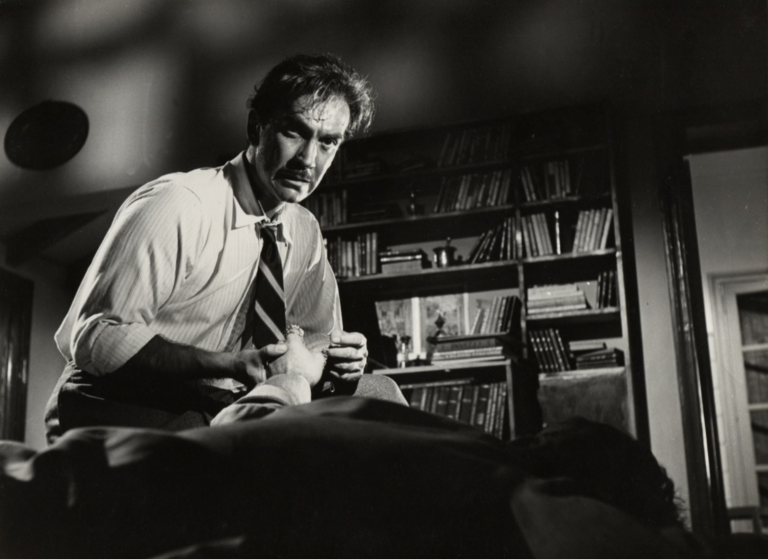Argentine Noir
2023/6/22

In 2017, we presented a selection of „black“ films from Mexico as part of our traditional excursion into non-American forms of film noir. After six years, we return to South America, specifically to Argentina, where the socio-politically turbulent period between 1946 and 1955 during the presidency of General Juan Domingo Perón, a sympathizer of Italian fascism, had a significant impact on the work of many filmmakers there. As the film historian Imogen Sara Smith has commented, films made during the Perón era „tell of a turbulent, conflict-ridden time – which for some represented a period of oppression and for others an era of justice and national pride. Crime and superstition collide in works that exemplify the tradition of film noir, yet are little known outside their geographical area – and sinister figures, crime and violence are omnipresent on the gritty streets of Buenos Aires.“
These noir gems would be de facto unknown outside Argentina were it not for the research activities of local film historian Fernando Martín Peña. With the institutional help of the US-based Film Noir Foundation and its president Eddie Muller, UCLA in California, and the Library of Congress in Washington, D.C., the selected works were restored and presented to a contemporary audience a few years ago – among others, as part of Peña and Muller’s curatorial selection at MoMA in New York, at the prestigious Austrian Viennale, and at the traveling American festival Noir City organized by Muller’s Film Noir Foundation.
Four of these exceptional works are being brought to the Czech Republic this year: a distinctive remake of Fritz Lang’s M (1931), which was made in Argentina under the title The Black Vampire (1953) by the acclaimed Uruguayan-born director Román Viñoly Barreto, from whom we will also present the visually arresting noir The Beast Must Die (1952), about a crime writer obsessed with revenge. In line with this year’s main programming section will be the noir The Bitter Stems (1956), directed by Fernando Ayala, about a treacherous journalist profiting from the blind trust of others. The selection will be rounded off by the socially engaged adaptation of African-American Richard Wright’s novel Native Son (1951), which, because of the sharp confrontation between the black and white communities in the US at the time, could not be made in Hollywood and was thus made by French director Pierre Chenal in Argentine exile with Wright in the lead role.
Jana Bébarová
